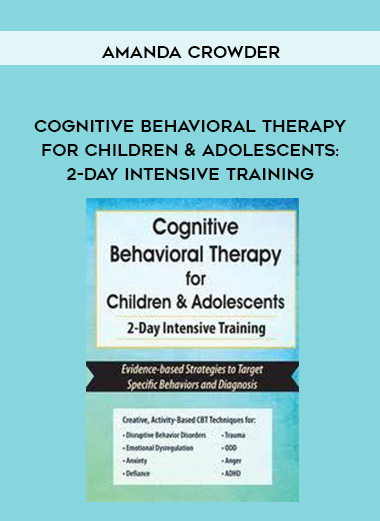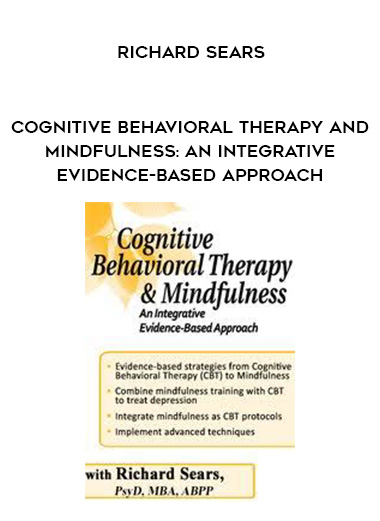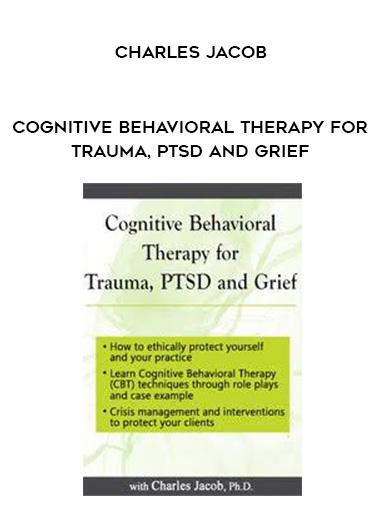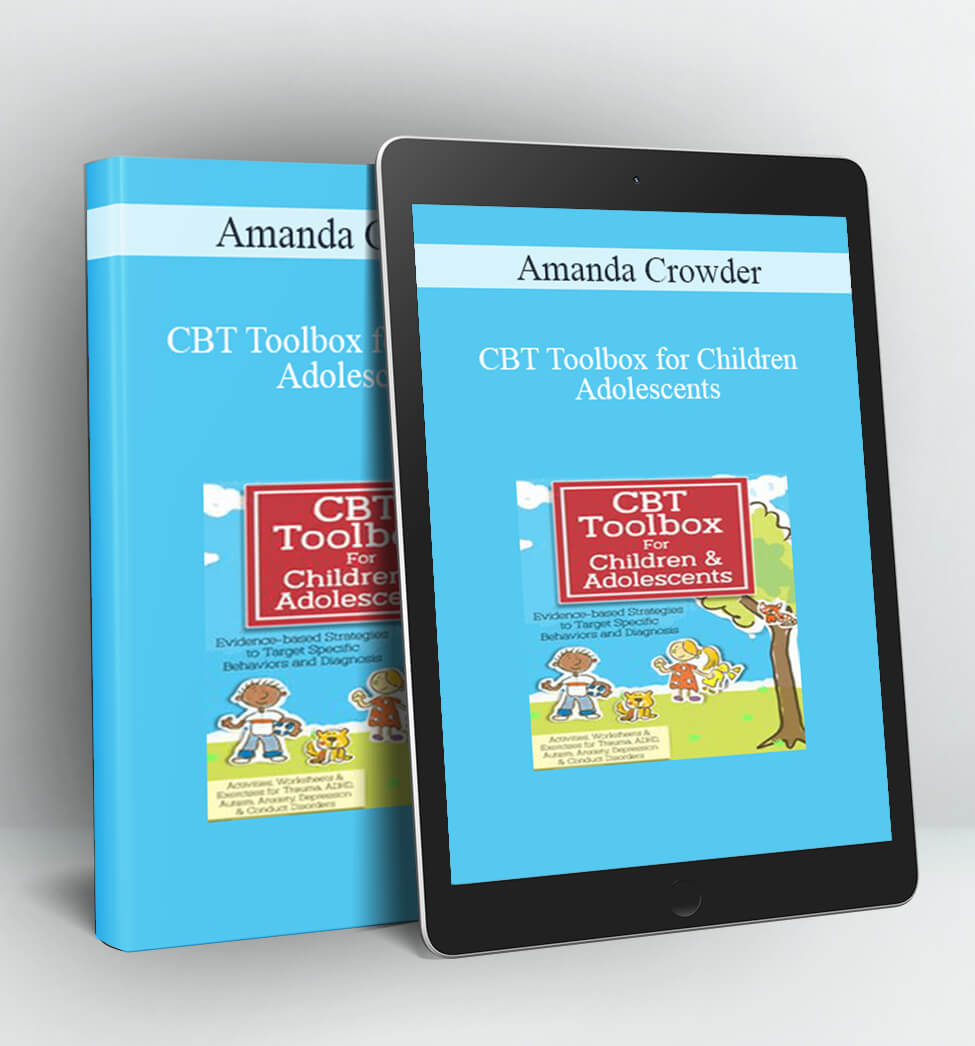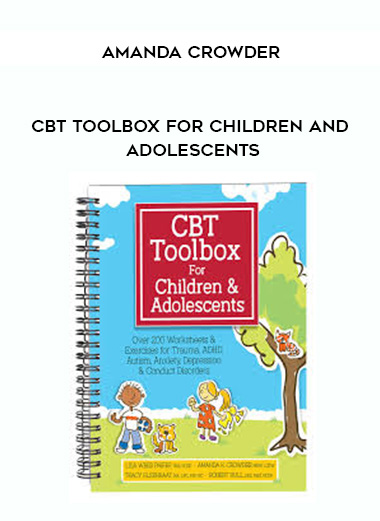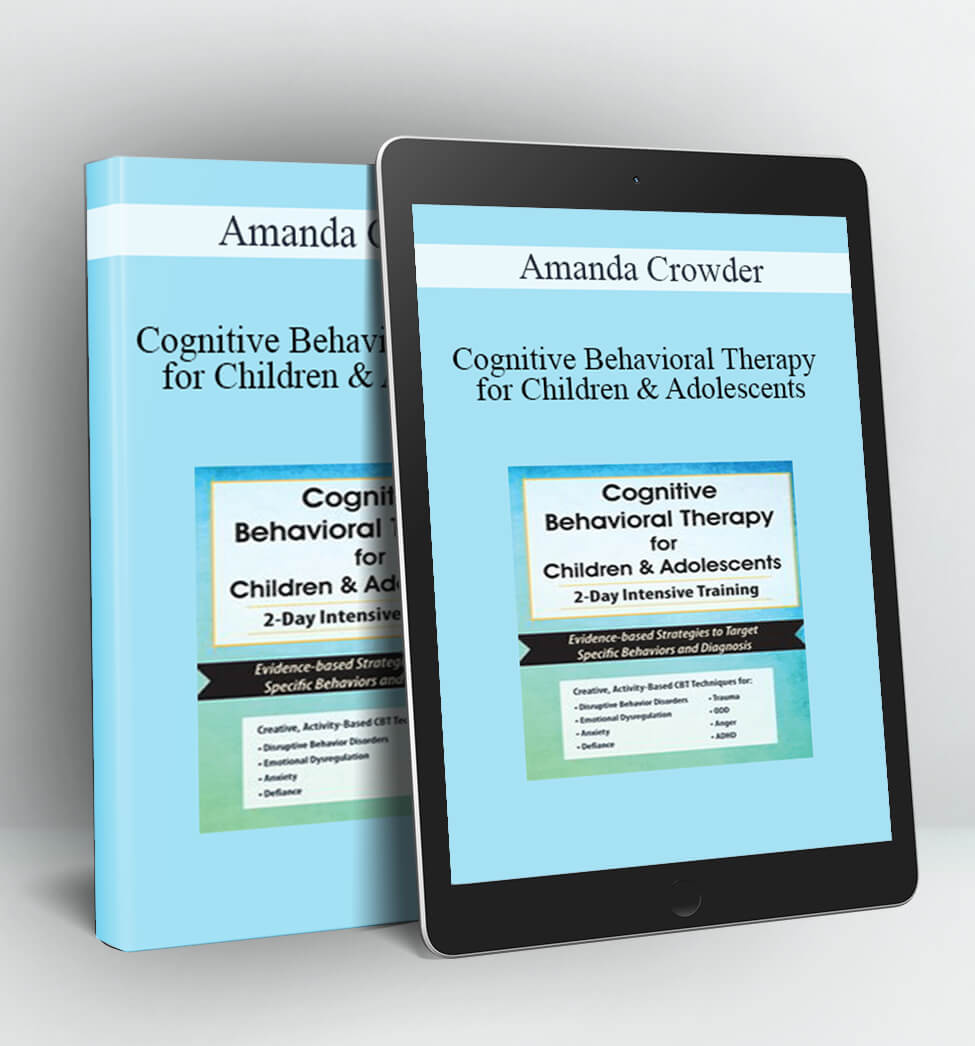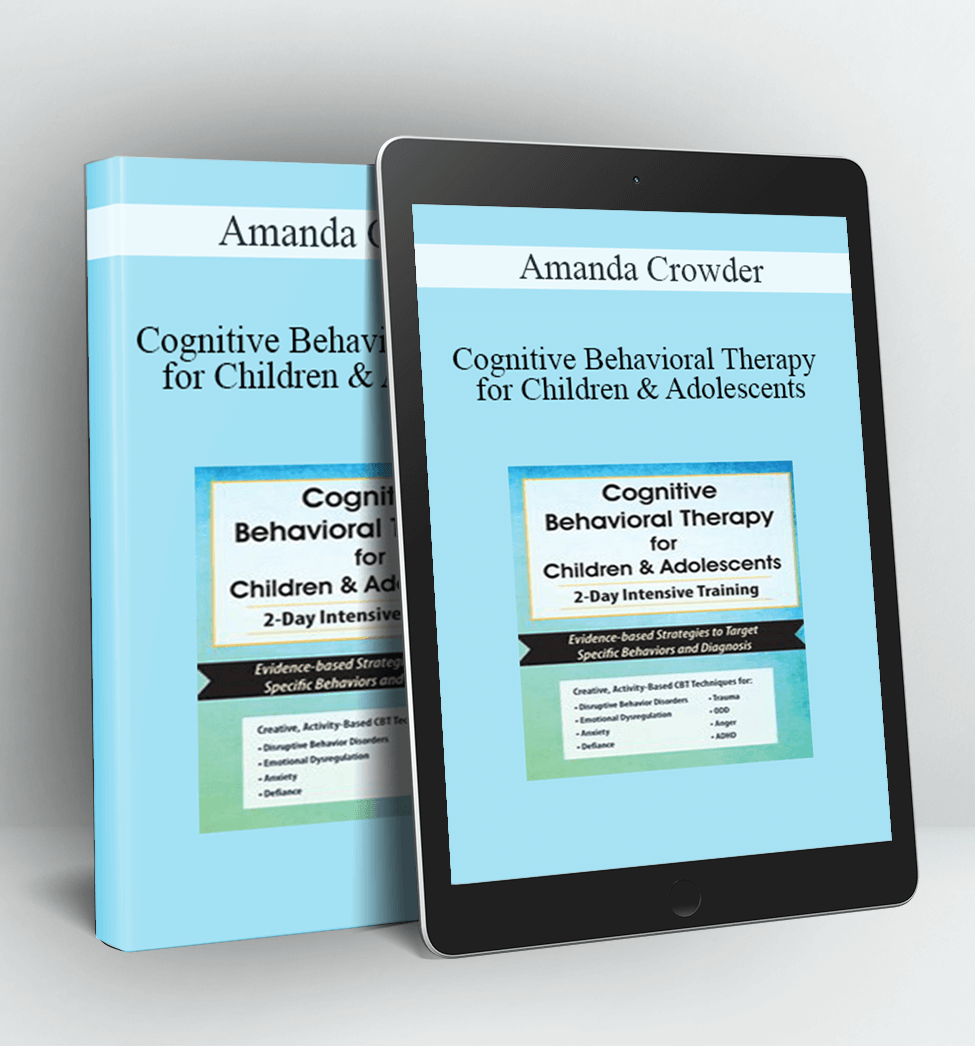COGNITIVE BEHAVIORAL THERAPY FOR CHILDREN & ADOLESCENTS: 2-DAY INTENSIVE TRAINING – AMANDA CROWDER
“Fix my kid.” This is the desperate cry of parents and caregivers who walk into your office seeking help.
You start the therapeutic process with your go-to techniques. And your client progresses…for a while. But when they fail to make additional gains, or even regress, your skills as a therapist are put to the test. When all your usual tools have been exhausted, you’re left feeling helpless and wondering how to move forward.
Breathe new life into therapeutic approaches for resistant and avoidant cases with creative, activity-based interventions grounded in the proven success of CBT!
Amanda Crowder, LCSW, delivers an energetic technique-heavy workshop that will give you the tools you need to harness the power of a creative, activity-based CBT approach. Amanda will provide the exercises and interventions she’s found most effective in improving outcomes for children and adolescents with disruptive behavior, trauma, ADHD, defiance, anger, anxiety, depression and family conflict.
Case examples, activities and hands on practice will enable you to easily integrate these essential skills in your practice and allow you to individualize them for a variety of disorders and temperaments. Evidence-based techniques help you to drastically increase children’s engagement in treatment, improve emotional functioning, strengthen relationships, maximize academic engagement, and minimize acting out behaviors. Must have strategies create an affiliation between you, the child, and family members – boosting parent/child satisfaction, motivation and retention in therapy.
Better still, you’ll have the opportunity to practice the application of what you’ve learned under Amanda’s expert supervision allowing its immediate incorporation into your clinical work.
Watch Amanda during this workshop and finish feeling prepared and empowered to improve the lives of your most difficult-to-treat young clients with a creative, activity-based CBT approach!
- Explore key components of cognitive behavioral therapy (CBT) as it relates to children and adolescents.
- Formulate strategies to engage children and adolescents in easy, creative and effective therapeutic cognitive behavioral activities.
- Apply, practice, and integrate evidence-based CBT techniques to modify and change maladaptive behaviors.
- Utilize best practices in developing a therapeutic alliance with children and adolescents.
- Analyze barriers for treatment of children and adolescents and how to reduce them.
- Assess, challenge and replace negative self-talk, thoughts, assumptions and core beliefs.
- Explore CBT modalities for strengthening cognitive skills for clients disruptive behavior disorders.
- Implement relationship coaching activities that promote alliance building and prosocial skills among clients with autism spectrum disorder and other disorders.
- Explore activities that develop resiliency and problem solving among clients who experience trauma, depression and anxiety.
- Implement brain-based and behavioral interventions for adolescents who struggle with disruptive behavior, anger, and family contention.
- Practice creative emotional regulation activities to develop emotional language and reduce dysregulation.
- Participate in brain-based learning activities that connect clients with the present and support healthy lifestyle habits.
- Communicate the importance of collaboration with families and utilize approaches to engage families in the treatment of children and adolescents.
- Utilize the CBT thought record and mood charting in order to enhance data based decision making.
CBT for Children & Adolescents
Core components
- Case Conceptualization and Treatment Planning
- Identifying Core Belief Systems & Negative Thinking Patterns
- Understanding Cognitive Distortions
- Implementing Homework
Build Rapport & Motivation
The Importance of Family Engagement
The Creation of Self-Talk
- Parental Resistance
- Parental Misbehavior
Cognitive Skills
Relationship Coaching
Competency Building
Brain-based Therapy
Identify and Understand Cognitive Distortions
Skills to Modify Maladaptive Thinking
Validation to Improve Engagement
Feelings Identification and Utilization to Improve Communication Skills
Cultural & Developmental Issues
INTERVENTIONS:
Childhood Trauma
- Identify & Define
- Cognitive Narratives & Trauma Stories
- Utilization of Play
- Alliance Building & Reciprocal Relationships
- Resilience
- Symptom Relief & Coping Mechanisms
- The Use of Mind & Body
ADHD
- Assessment, Diagnosis, & Use of Medications
- Concentration & Impulse Control
- Metacognition
- Relationships & Prosocial Skills
- Time Management & Goal Setting
- Self-Regulation
- Brain Breaks & Healthy Habits
Autism
- Assessment, Diagnosis, & Treatment Planning
- Flexible Thinking
- Sensory Integration
- Perspective Taking & Relationship Building
- Emotional Expression
- Managing Expectations
- Creating Functional Interactions
- Social Thinking
ODD, Conduct Disorder, Disruptive Behaviors, & Anger
- Assessment, Diagnosis, & Treatment Planning
- Anger, Aggression, and Dysregulation
- Communication
- Building Alliances & Positive Relationships
- Emotional Vocabulary & Regulation
- Reframing Thoughts
- Create Peace & Gratitude
- Body Mindfulness & Control
Anxiety and OCD
- Assessment, Diagnosis, & Use of Medications
- Externalize & Define “Bad” Worry
- Identify Body Reactions
- Assertiveness Skills
- Problem Solving
- The Need for Control
- Challenging Thoughts & Perspective Changing
- Mindfulness
Mood Disorder
- Mood, Isolation, & Emotional Expression
- Mood Charting
- Emotional Vocabulary & Regulation
- Reframe Thoughts
- Create Peace & Gratitude
- Body Mindfulness & Control
Self-Injurious Behaviors, & Suicidality
- Assessment, Treatment Strategies
- Self-Esteem & Confidence Building
- Identify Negative Self-Talk
- Problem Solving & Coping Skills
- Foster Motivation
- The Impacts of Being Healthy
Parental Supports
- Identify Parenting Styles
- Your Kid(s) & Their Differing Needs
- Attachment
- Receive & Give Love
- Utilize Choices as a Problem Solving Skill
- Set & Keep Limits & Boundaries
- Structure & Routine
- How to Structure Rewards & Punishments
- “Time Outs” for Parents
- Improve Parent-Child Bonding/Interactions
Special Circumstances
The Importance of Collaboration
School Implementation
Group Implementation
Tag: Cognitive Behavioral Therapy for Children & Adolescents: 2-Day Intensive Training – Amanda Crowder Review. Cognitive Behavioral Therapy for Children & Adolescents: 2-Day Intensive Training – Amanda Crowder download. Cognitive Behavioral Therapy for Children & Adolescents: 2-Day Intensive Training – Amanda Crowder discount.

